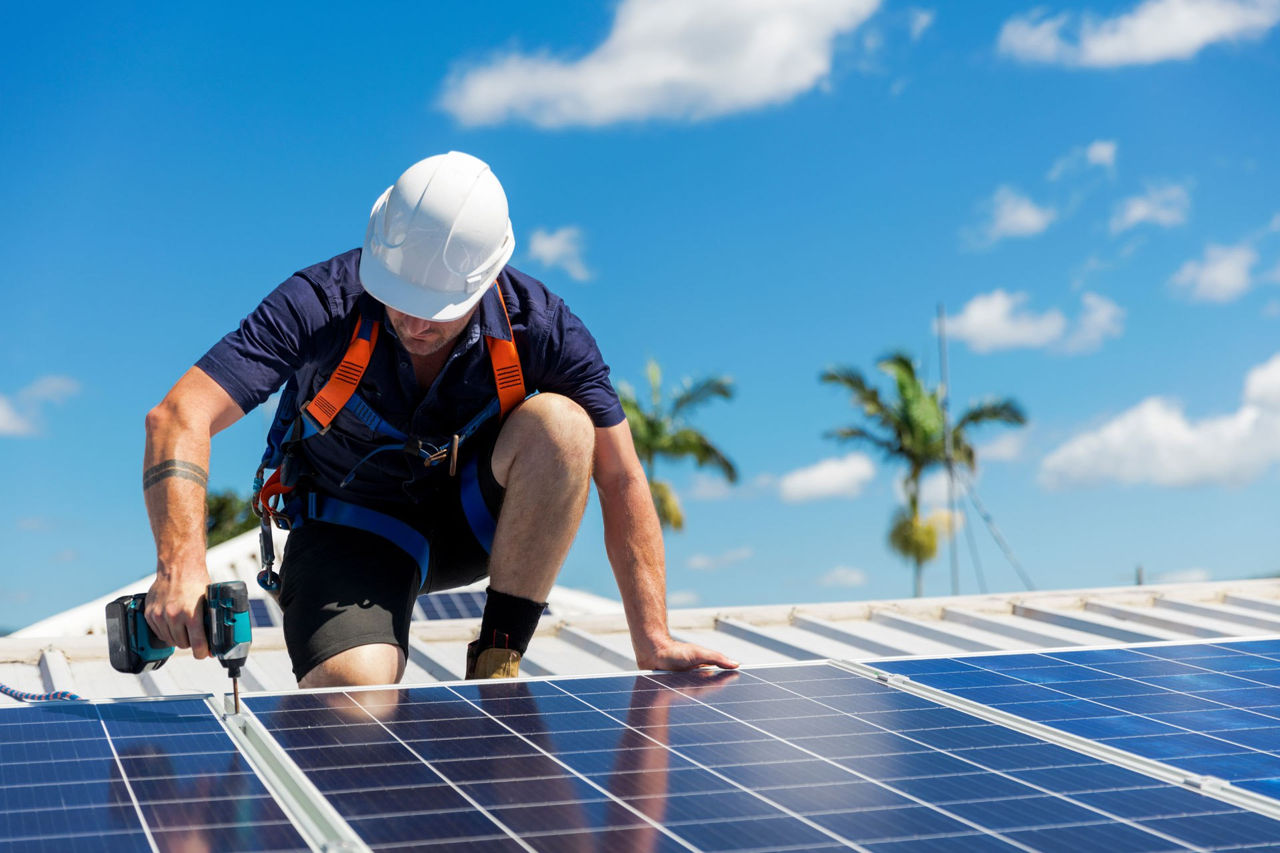Introduction
A reliable and cost-effective power source for both home and business use is solar energy. To guarantee
that your solar installation performs at its peak efficiency, however, routine maintenance is necessary.
You may reduce your electricity expenditures by extending the life of your solar panels and optimizing
their energy production through proper maintenance. In order to optimize your investment, this blog
post will go over the best practices for maintaining your solar installation.
1. Clean Solar Panels
Debris, such as dust, dirt, and bird droppings, can land on your solar panels and reduce their ability to
absorb solar energy. Their effectiveness can be maintained by cleaning them at least every two to three
months. Use soapy water and a sponge or soft cloth to clean the panels gently. Because they can
damage the panels’ surface, please avoid using abrasive products or high-pressure water. Cleaning must
be done more frequently if your solar installation is subjected to dust or moisture.
2.Check Energy Generation
Monitoring your solar system’s energy output can allow you to catch any problems early. Most new
solar installations have monitoring systems that give you real-time feedback on energy output. A drastic
reduction of the production could indicate an issue with the panels, wiring, or inverter. Regular
monitoring ensures that any performance problem is caught and addressed promptly.
Note:
Tamgo Tanzania Limited had successfully completed solar installation in Tanzania, providing reliable and efficient energy solutions. Their systems ensured cost savings and sustainability. Contact Tamgo Tanzania Limited for top-quality solar installation in Tanzania that will power your future with clean energy.
3. Check for Damage and Wear
Exposure to high-weather conditions like storms, hail, and high winds may physically damage the solar
panels and mounting hardware. Inspect your installation regularly for cracks, loose connections, and
corrosion. Be particularly vigilant when checking the inverter and the electrical components since faulty
and damaged components can potentially lower overall performance. Repair the damage if detected
and have a professional technician handle it.

4. Monitor the Inverter Performance
The inverter is one of the key parts of a solar installation because it takes the DC electricity that the
panels produce and turns it into usable AC power. With time, inverters can get worn out, which can
compromise performance. Inspect the inverter display from time to time for any error messages or
flashing lights. When the inverter is not operating correctly, it can significantly reduce energy output.
Professional maintenance can be necessary if you experience regular problems.
5. Ensure Proper Shading Conditions
Shading by buildings, trees, or other structures can decrease the efficiency of your solar panels. Even
partial shading can cause a dramatic reduction in energy output. Trim nearby trees regularly and clear
any objects that can cast shadows on your panels during the peak sunlight hours. Having the panels
receive maximum sunlight during the day will enhance overall performance.
6. Schedule Professional Maintenance
While routine cleaning and checking may be done by the homeowner, professional maintenance should
be scheduled at least every year. Experienced service technicians possess the skills and equipment to
detect and repair intricate problems that are not apparent during regular inspections. They can conduct
thorough tests and alignments to maximize system efficiency.
7. Maintain Proper Battery Maintenance (If Applicable)
Good battery maintenance is necessary for best performance if your solar installation has battery
storage. Keep the terminals of the battery clean and inspect for corrosion or leakage. Charge and
discharge the battery according to the manufacturer’s recommendations to extend battery life and keep
it efficient.
8. Maintain Electrical Connections
Loose or corroded electrical connections can lower the efficiency of your solar installation. Check the
wiring and junction boxes periodically to ensure tight and corrosion-free connections. Professional
maintenance may be required to repair any faulty wiring or electrical problems.
Conclusion
Taking care of your solar installation is crucial to optimize energy output and prolong the system’s life.
Daily cleaning, checking, and expert inspections can prevent performance degradation and ensure your
solar panels work at their highest capacity. Proper maintenance for those planning a solar installation in
Tanzania will enable you to get the best out of Tanzania’s sunlight and save on energy in the long term.
These maintenance suggestions will give you reliable and sustainable solar energy for decades.
For More Insightful Articles Related To This Topic, Feel Free To Visit: TSB News





